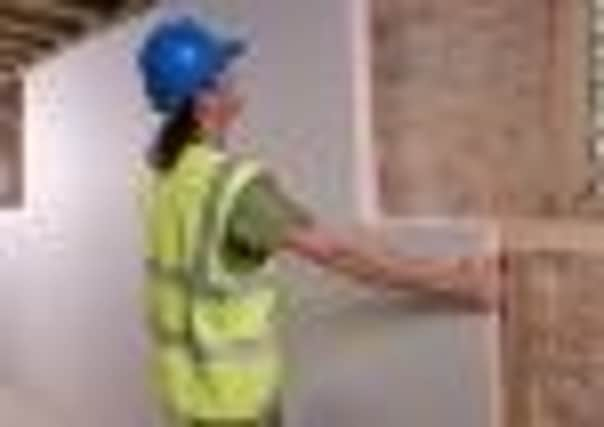Insulate to save money


The National Insulation Association (NIA) is advising businesses to invest in insulation and combat climate change sooner rather than later.
Chief executive Neil Marshall says: “As there are fast-rising costs in many other areas too, businesses should not wait a moment longer to put these money-saving measures into place.”
Advertisement
Hide AdAdvertisement
Hide AdThe way a building is constructed, insulated, ventilated and the type of fuel used, all contribute to its carbon emissions.
“A worrying fact is that a significant proportion of the money spent on energy is literally being thrown out of the window as a result of inadequate levels of insulation, with about 50 per cent of the heat being lost through the roof and walls.”
The NIA is a not-for-profit organisation representing more than 90 per cent of the UK’s manufacturers and installers of cavity wall, solid wall and loft insulation, as well as draught-proofing.
As a membership organisation, it actively supports the Government’s accelerated programme for insulation, which aims to raise awareness not only of the amount of heat lost through inadequate insulation, but also the amount of money that can be saved.
Advertisement
Hide AdAdvertisement
Hide AdThe NIA is working with the Department of Energy and Climate Change in the development of its plans to create a major step change in the uptake of energy measures over the next decade.
The Government recognises the key role that insulation has to play in reducing energy bills and combating climate change, and is therefore working closely with the NIA in the development of its new Green Deal programme. Insulation is one of the most cost-effective ways of reducing energy consumption, with cavity wall insulation (CWI) providing the perfect solution for local businesses. About 33 per cent of a building’s heat is lost through uninsulated cavity walls, and around 25 per cent through the roof, collectively amounting to considerable heat loss and the need for further energy consumption.
CWI usually takes less than a day to install and, with all the work done from outside the building, the disruption to business is minimal.
For those buildings which do not have cavity walls – solid stone, pre-1944 timber frame and non-traditional, such as concrete construction – which lose more heat and energy than any other type of construction, other solutions are readily available.
Advertisement
Hide AdAdvertisement
Hide AdSolid walls can be insulated with either internal wall insulation (IWI), external wall insulation (EWI), or a combination of the two, known as a hybrid solution, and any option will greatly increase comfort, while also reducing energy bills and the associated environmental impact.
Mr Marshall says: “There are many options widely and readily available to businesses, large or small, looking to reduce energy consumption, leaving them no excuse not to install insulation and start saving money on fuel bills from day one.”
NIA approved installers provide free surveys and are experienced in recommending the most suitable and practical insulation options for each individual property.
They also have access to information on grants and subsidies to help make the cost of insulating even more affordable.
Advertisement
Hide AdAdvertisement
Hide AdThe NIA recommends contacting one of its installer members, as they are trained to the highest standards and also governed by a strict code of professional practice.
For more information about insulation, and a list of members, hit www.nationalinsulationassociation.org.uk or ring 08541 636363.